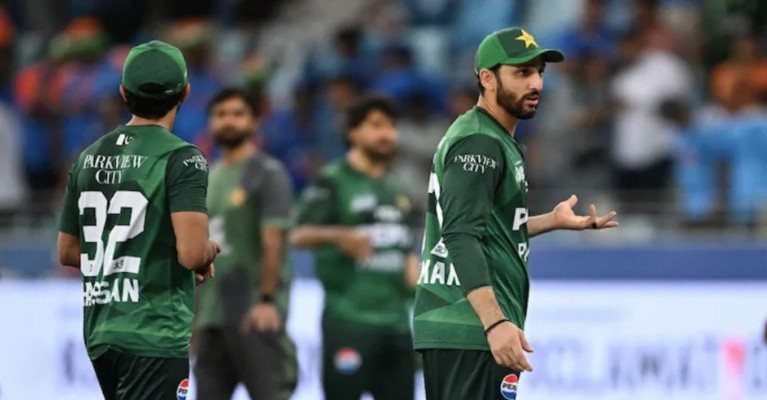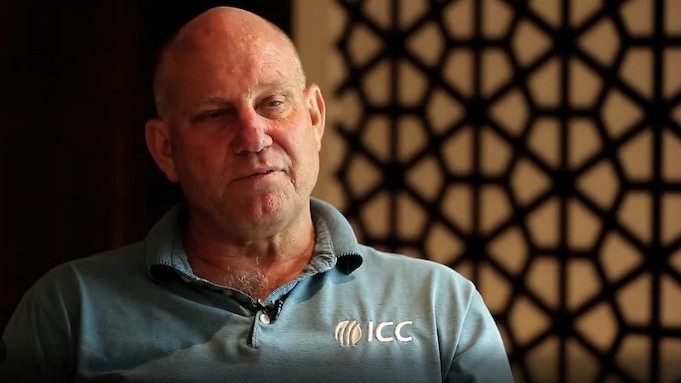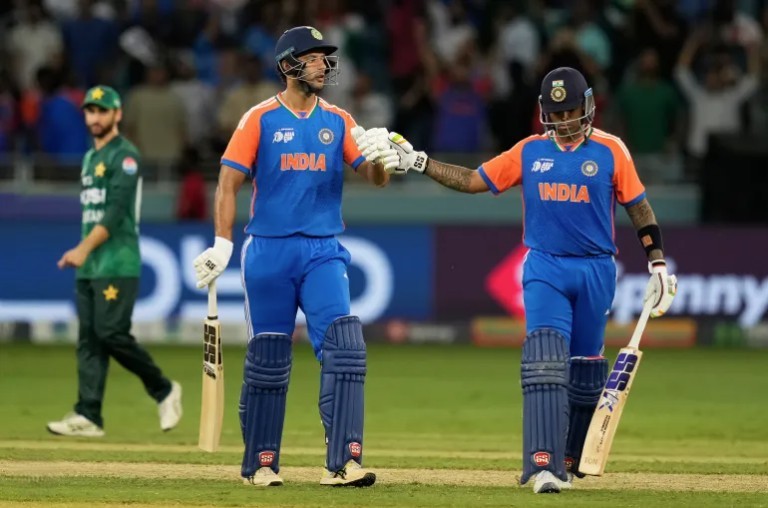Sports Desk

Dubai: India’s seven-wicket win over Pakistan in the Asia Cup group stage in Dubai on 14 September 2025 was eclipsed by controversy after Indian players skipped the customary handshake. Pakistan lodged a formal protest, accused match referee Andy Pycroft of mishandling protocol, and demanded his removal. The ICC rejected the demand, deepening tensions. Pakistan then cancelled a scheduled press conference before its next game, fuelling speculation of boycott threats and highlighting how cricket once again became hostage to geopolitics.
Match Outcome and Incident
India chased down Pakistan’s total with ease, securing a seven-wicket win. The cricket, however, quickly faded into the background as Indian players refused both pre- and post-match handshakes, citing national sensitivities. Pakistan players lined up but were left waiting. According to reports, the referee had instructed captains to avoid a handshake at the toss but Pakistan says it was never told that India had been permitted to skip the post-match ritual too.
Pakistan’s Protest and Demands
The PCB lodged an immediate protest, accusing Pycroft of failing to maintain neutrality and transparency. It demanded his removal from the tournament and warned of escalation, with senior PCB figures suggesting withdrawal was on the table if corrective action was not taken. Pakistan’s captain and coach also visibly distanced themselves from media duties after the game, signalling discontent.

ICC Response
The ICC rejected Pakistan’s demand to remove Pycroft, stating it retained full confidence in his neutrality. The decision infuriated the PCB and widened the rift. Without an official resolution, the controversy spilled over into Pakistan’s preparations, prompting the team to cancel its pre-match press conference ahead of the must-win UAE clash—an act seen as a silent protest.
Stakeholder Positions
India framed the non-handshake as a symbolic gesture amid cross-border hostilities, with the Indian captain dedicating the victory to the armed forces. The PCB insisted the episode showed bias and double standards. The ACC confirmed Pakistan’s cancelled press conference but avoided commentary on the handshake row. The ICC stood by its referee, brushing aside calls for suspension.
Wider Reaction
Media outlets across South Asia and beyond covered the clash less for its cricket and more for its symbolism. Al Jazeera called it a rare blend of sport and geopolitics. Indian and Pakistani outlets amplified nationalist narratives, while social media polarized sharply—some defending India’s stance as patriotic, others condemning it as a breach of sportsmanship.

Risks and Implications
The controversy risks further poisoning Indo-Pak cricket ties and undermining future bilateral or multilateral fixtures. Tournament integrity could suffer if one side threatens withdrawal or boycotts. Security concerns loom larger around politically charged games, and questions are being raised about consistency in officiating, which if left unaddressed could erode faith in ICC’s neutrality.
Way Forward
Experts argue the ACC and ICC must publish a transparent account of pre- and post-match instructions, standardize protocols for high-sensitivity games, and facilitate direct dialogue between PCB and BCCI to avoid recurrence. Pakistan is urged to pursue grievances through official channels rather than public brinkmanship, while organisers must shield players from politicisation and ensure cricket is not reduced to a proxy battlefield.























